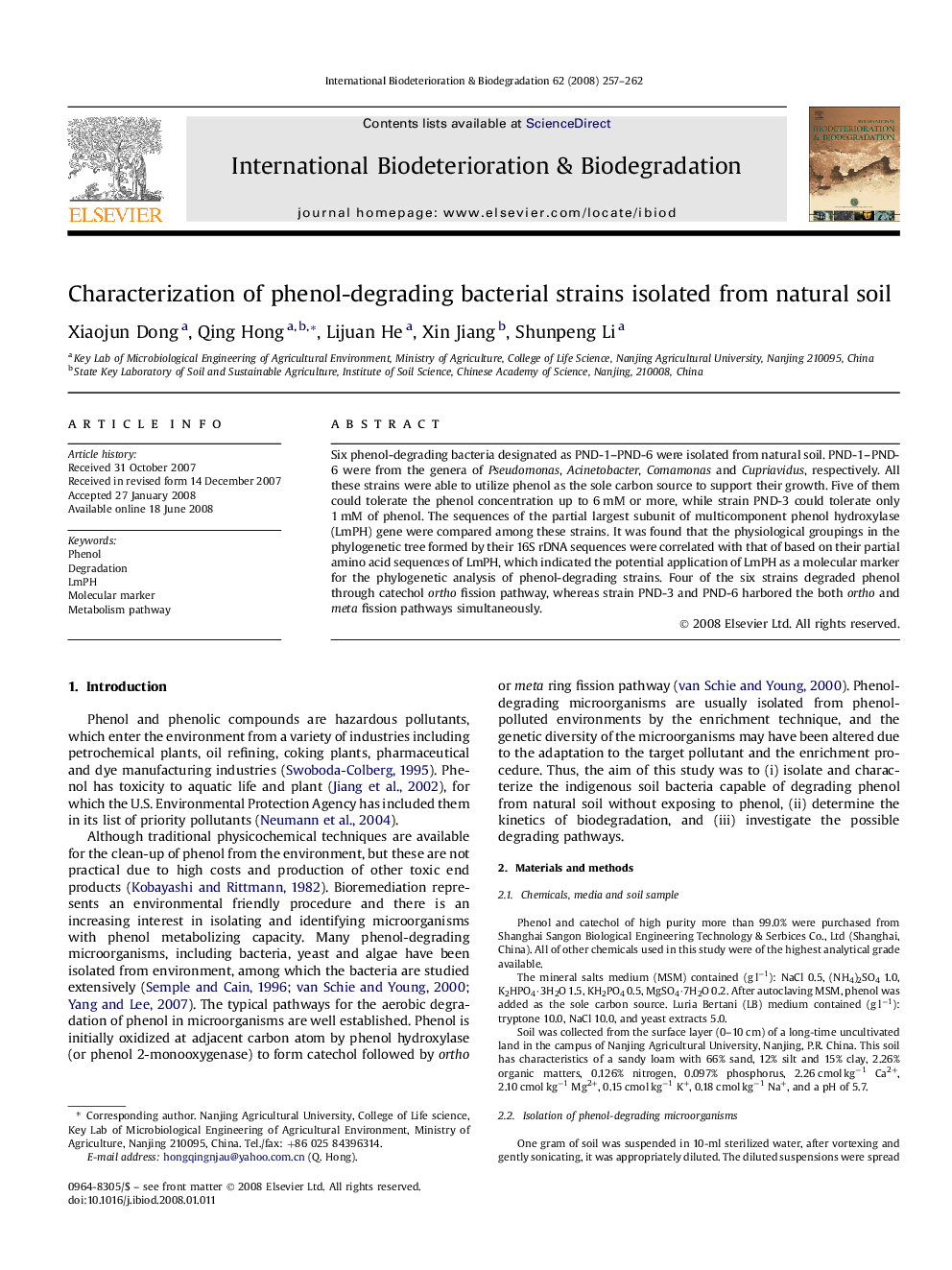| Article ID | Journal | Published Year | Pages | File Type |
|---|---|---|---|---|
| 4365688 | International Biodeterioration & Biodegradation | 2008 | 6 Pages |
Abstract
Six phenol-degrading bacteria designated as PND-1-PND-6 were isolated from natural soil. PND-1-PND-6 were from the genera of Pseudomonas, Acinetobacter, Comamonas and Cupriavidus, respectively. All these strains were able to utilize phenol as the sole carbon source to support their growth. Five of them could tolerate the phenol concentration up to 6Â mM or more, while strain PND-3 could tolerate only 1Â mM of phenol. The sequences of the partial largest subunit of multicomponent phenol hydroxylase (LmPH) gene were compared among these strains. It was found that the physiological groupings in the phylogenetic tree formed by their 16S rDNA sequences were correlated with that of based on their partial amino acid sequences of LmPH, which indicated the potential application of LmPH as a molecular marker for the phylogenetic analysis of phenol-degrading strains. Four of the six strains degraded phenol through catechol ortho fission pathway, whereas strain PND-3 and PND-6 harbored the both ortho and meta fission pathways simultaneously.
Related Topics
Life Sciences
Environmental Science
Environmental Science (General)
Authors
Xiaojun Dong, Qing Hong, Lijuan He, Xin Jiang, Shunpeng Li,
